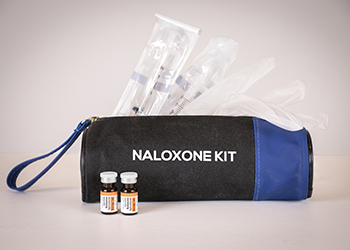
Following months of rapidly escalating rates of opioid-related overdose events and deaths, British Columbia’s Provincial Medical Health Officer declared a public health emergency in April 2016. The declaration enabled the BC Centre for Disease Control, Ministry of Health, Regional Health Authorities, BC Coroners Service, and related stakeholder groups to quickly expand and adopt new harm reduction services to meet the needs of people who use illicit drugs. Services available at the time included; needle and syringe programs, opioid agonist treatment, and, exclusive to Vancouver, supervised injection facilities (SIFs).
These services were subsequently supplemented with the opening of multiple overdose prevention (OPSs) and supervised consumption (SCSs) sites across the province. Similar to SIFs, OPSs and SCSs are centres where people can consume pre-obtained drugs and receive treatment for overdose events. OPSs are managed by health authorities with community partners, but unlike SIFs and SCSs, they do not require exemption from federal drug laws, making them a quick intervention to implement. OPSs are viewed as temporary solutions (until permanent SCSs can be established in the community) offering; access to overdose prevention education; Take Home Naloxone training and distribution; drug use paraphernalia; safe disposal options, and may enable access to mental health and substance use services. SCSs provide safe spaces for consumption of drugs under the supervision of medically trained staff, without risk of arrest for drug possession, and also provide access to housing and other social assistance services.
A new study, led by Dimitra Panagiotoglou, Assistant Professor at McGill University, aims to quantify the health and health system burden associated with opioid overdose events, and the effects of the newly implemented OPSs and SCSs. The project is funded by McGill University’s Research Start-up Funds.
“Multiple studies have demonstrated the risk of mortality associated with opioid use, and the effectiveness of Take Home Naloxone, opioid agonist treatment, and the localized benefits of Vancouver’s InSite program in reducing mortality and the transmission of infectious diseases,” says Dr. Panagiotoglou. “To date however, there have been no evaluations of the population-level health and health system effects of OPSs and SCSs. This includes a dearth of information on the effectiveness of SCSs/OPSs on mitigating severe overdose events and overdose-related sequelae, and the consumption of acute care services.”
This project will conduct a comprehensive evaluation of the effects of the newly implemented OPSs and SCSs on opioid overdose related events, health outcomes, and health services used. Dr. Panagiotoglou’s research team hope that the work will help future resource planning both in identifying critical geographic factors for consideration of new sites and in cost offsetting opportunities.
PopData is providing secure access to the BC Provincial Overdose Cohort for the study. The BC Provincial Overdose Cohort was established to provide access to critical information to inform overdose response activities. It is hosted at the BC Centre for Disease Control with partnership from the Provincial Health Officer and Ministry of Health.